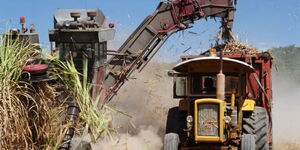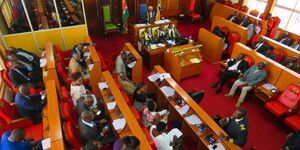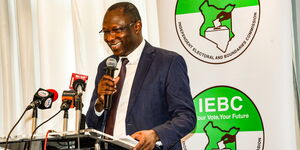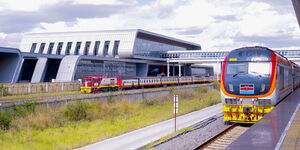The Kenya Association of Manufacturers (KAM) wants President William Ruto to further reduce the Import Declaration Fee (IDF).
The association, in its Manufacturing Priority Agenda (MPA) 2024 report, asked the State to reduce the fee from the current 2.5 per cent rate to 1.5 per cent.
KAM explained that the reduction will help in reducing the cost of imported industrial inputs.
"To reduce the cost of imported industrial inputs, the government should reduce the IDF rate from 2.5% to 1.5% for raw materials, intermediate inputs, industrial machinery and spare parts," read part of the recommendations.
"Remove excise duty and Export and Investment Promotion Levy on raw materials, intermediate inputs and packaging materials; and adhere to the philosophy behind the EAC Common External Tariff (CET) structure," added the association.
In July 2023, the State reduced the fee in question from 3.5 per cent to its current 1.5 per cent but introduced the Export and Investment Promotion Levy paid by the importer of specified goods at the rate of 17.5% or 10% depending on the item.
All importers are mandated to fill out the import declaration form to prove that they have declared the accurate value of the imported goods before they leave the country of origin.
In its report, KAM argued that the fee is only levied in Kenya whereas its neighbouring countries of Uganda Tanzania Rwanda and Burundi steered clear of the fee.
"The Finance Act of 2023 introduced fiscal measures that created unwarranted and immeasurable negative unintended consequences to the paper, steel, and cement manufacturing sectors. Tax measures introduced include the EIPL, excise duty on cement clinkers and paper products as well as adjustments to the tariffs under the EAC Common External Tariff (CET) for paper and steel products," read the report in part.
"For example, the Finance Act of 2023 introduced a 17.5% EIPL on imported billets (7207.11.00), which is the main raw material used by manufacturers in the Hot-Rolling Sub-sector, and wire rods (7213.91.10). This makes imported billets to Kenya more expensive compared to EAC Partner States. Effectively, total import taxes for billets in Kenya increased to 31.5% compared to 1.5% for Uganda and Tanzania, 1.9% for Rwanda and 0% for Burundi."
The manufacturers argued that the fees had increased the cost of raw materials and intermediate inputs and introduced unprecedented difficulties in accessing raw materials.












